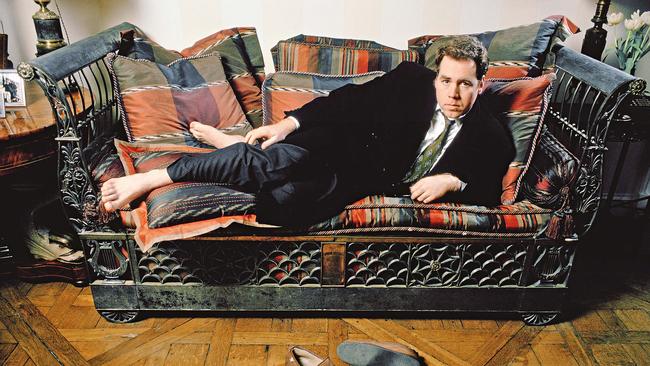Life with the sensitive Generation Wuss
Millennials, having been mollycoddled by their overprotective parents, have become far too sensitive.

By 2014, I’d been living with a millennial for almost five years (22 years my junior), and I was alternately charmed and exasperated by how he and his friends lived their lives. I had been occasionally tweeting about my amusement and frustration under the banner “generation wuss”.
My huge generalities touched on millennials’ oversensitivity, their sense of entitlement, their insistence that they were always right despite sometimes overwhelming proof to the contrary, their failure to consider anything within its context, their joint tendencies of overreaction and passive-aggressive positivity — incidentally, all of these misdemeanours happening only sometimes, and possibly exacerbated by the meds many this age had been fed since childhood by overprotective helicopter moms and dads mapping their every move.
These parents, whether tail-end baby boomers or gen X-ers, felt they’d never really been loved by their own selfish, narcissistic true-boomer parents, and who as a result were smothering their kids and not teaching them how to deal with life’s hardships about how things actually work: people might not like you, this person will not love you back, kids are really cruel, work sucks, it’s hard to be good at something, your days will be made up of failure and disappointment, you’re not talented, people suffer, people grow old, people die. And the response from generation wuss was to collapse into sentimentality and create victim narratives, instead of grappling with the cold realities by struggling and processing them and then moving on, better prepared to navigate an often hostile or indifferent world that doesn’t care if you exist.
Even my boyfriend agreed that generation wuss was far too sensitive, especially when facing any criticism. Unlike any previous generation, they had so many outlets to display whatever they wanted (thoughts, feelings, art) that it often went — unfettered, unedited — instantly and globally everywhere, and because of this, a lot of the time it tended to seem rushed.
When millennials were criticised for this sort of content, or for anything, really, they seemed to get so defensive they either collapsed into a spiralling depression or lashed out at the critical parties and called them haters, contrarians, trolls.
This forced you to look again at the people who raised them, coddling them with praise and trying to shield them from the grim sides of life, which might well have created children who, as adults, appeared confident, competent and positive, but at the hint of darkness or negativity often became paralysed and unable to react except with disbelief and tears and retreated, in effect, into their childhood bubbles.
But if you’re a smart person who happens to be so traumatised by something you refer to yourself in conversation as a “survivor-victim”, you probably should contact the National Centre for Victims and ask them for help.
If you’re an adult who can’t read Shakespeare or Melville or Toni Morrison because it might trigger something harmful and such texts could damage your hope to define yourself through your victimisation, then you need to see a doctor, get into immersion therapy or take some meds.
If you feel you’re experiencing “micro-aggressions” when someone asks you where you are from or “Can you help me with my maths?” or offers a “God bless you” after you sneeze, or a drunken guy tries to grope you at a Christmas party, or some douche brushes against you at a valet stand in order to cop a feel, or someone merely insulted you, or the candidate you voted for wasn’t elected, or someone correctly identifies you by your gender, and you consider this a massive societal dis, and you need a safe space, then you need to seek professional help.
Victimising oneself is like a drug — you get so much attention, it does in fact define you, making you feel alive and even important while showing off your supposed wounds, no matter how minor, so people can lick them. Don’t they taste so good?
This epidemic of self-victimisation is actually an illness. It’s something one needs to resolve in order to participate in society, because otherwise one’s not only harming oneself but also seriously annoying family and friends, neighbours and strangers who haven’t victimised themselves.
The fact one can’t listen to a joke or view specific imagery (a painting or even a tweet) and that one might characterise everything as either sexist or racist (whether or not it legitimately is) and therefore harmful — ergo nobody else should be able to hear it or view it or tolerate it, either — is a new kind of mania, a psychosis that the culture has been coddling.
This delusion encourages people to think life should be a smooth utopia designed and built for their fragile and exacting sensibilities and in essence encourages them to remain a child for ever, living within a fairy tale of good intentions.
It’s impossible for a child or an adolescent to move past certain traumas and pain, though not necessarily for an adult.
Pain can be useful because it can motivate you and it often provides the building blocks for great writing and music and art. But it seems people no longer want to learn from past traumas by examining them in their context, by striving to understand them, break them down, put them to rest and move on.
To do this can be complicated and takes a lot of effort, but you would think someone in that much pain would try to figure out how to lessen it, however great the cost, instead of flinging it at others, expecting them to automatically sympathise with you and not recoil with irritation and disgust.
Edited extract from White, by Bret Easton Ellis (Picador, $36.99), out this week.



To join the conversation, please log in. Don't have an account? Register
Join the conversation, you are commenting as Logout